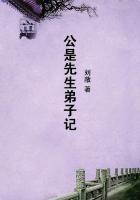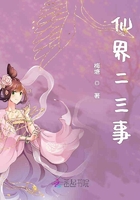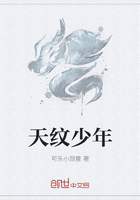We now desert the region of groundless conjecture, in order with the year 1357 to arrive at a firm though not very broad footing of facts. In this year, "Geoffrey Chaucer" (whom it would be too great an effort of scepticism to suppose to have been merely a namesake of the poet) is mentioned in the Household Book of Elizabeth Countess of Ulster, wife of Prince Lionel (third son of King Edward III, and afterwards Duke of Clarence), as a recipient of certain articles of apparel. Two similar notices of his name occur up to the year 1359. He is hence concluded to have belonged to Prince Lionel's establishment as squire or page to the Lady Elizabeth; and it was probably in the Prince's retinue that he took part in the expedition of King Edward III into France, which began at the close of the year 1359 with the ineffectual siege of Rheims, and in the next year, after a futile attempt upon Paris, ended with the compromise of the Peace of Bretigny. In the course of this campaign Chaucer was taken prisoner; but he was released without much loss of time, as appears by a document bearing date March 1st, 1360, in which the king contributes the sum of 16 pounds for Chaucer's ransom. We may therefore conclude that he missed the march upon Paris, and the sufferings undergone by the English army on their road thence to Chartres--the most exciting experiences of an inglorious campaign; and that he was actually set free by the Peace.
When, in the year 1367, we next meet with his name in authentic records, his earliest known patron, the Lady Elizabeth, is dead; and he has passed out of the service of Prince Lionel into that of King Edward himself, as Valet of whose Chamber or household he receives a yearly salary for life of twenty marks, for his former and future services. Very possibly he had quitted Prince Lionel's service when in 1361 that Prince had by reason of his marriage with the heiress of Ulster been appointed to the Irish government by his father, who was supposed at one time to have destined him for the Scottish throne.
Concerning the doings of Chaucer in the interval between his liberation from his French captivity and the first notice of him as Valet of the King's Chamber we know nothing at all. During these years, however, no less important a personal event than his marriage was by earlier biographers supposed to have occurred. On the other hand, according to the view which commends itself to several eminent living commentators of the poet, it was not courtship and marriage, but a hopeless and unrequited passion, which absorbed these years of his life. Certain stanzas in which, as they think, he gave utterance to this passion are by them ascribed to one of these years; so that if their view were correct, the poem in question would have to be regarded as the earliest of his extant productions. The problem which we have indicated must detain us for a moment.
It is attested by documentary evidence, that in the year 1374, Chaucer had a wife by name Philippa, who had been in the service of John of Gaunt, Duke of Lancaster, and of his Duchess (doubtless his second wife, Constance), as well as in that of his mother the good Queen Philippa, and who, on several occasions afterwards, besides special new year's gifts of silver-gilt cups from the Duke, received her annual pension of ten marks through her husband. It is likewise proved that, in 1366, a pension of ten marks was granted to _a_ Philippa Chaucer, one of the ladies of the Queen's Chamber. Obviously, it is a highly probable assumption that these two Philippa Chaucers were one and the same person; but in the absence of any direct proof it is impossible to affirm as certain, or to deny as demonstrably untrue, that the Philippa Chaucer of 1366 owed her surname to marriage. Yet the view was long held, and is still maintained by writers of knowledge and insight, that the Phillipa of 1366 was at that date Chaucer's wife. In or before that year he married, it was said, Philippa Roet, daughter of Sir Paon de Roet of Hainault, Guienne King of Arms, who came to England in Queen Philippa's retinue in 1328. This tradition derived special significance from the fact that another daughter of Sir Paon, Katharine, widow of Sir Hugh Swynford, was successively governess, mistress, and (third) wife to the Duke of Lancaster, to whose service both Geoffrey and Philippa Chaucer were at one time attached. It was apparently founded on the circumstance that Thomas Chaucer, the supposed son of the poet, quartered the Roet arms with his own. But unfortunately there is no evidence to show that Thomas Chaucer was a son of Geoffrey;and the superstructure must needs vanish with its basis. It being then no longer indispensable to assume Chaucer to have been a married man in 1366, the Philippa Chaucer of that year MAY have been only a namesake, and possibly a relative, of Geoffrey; for there were other Chaucers in London besides him and his father (who died this year), and one Chaucer at least has been found who was well-to-do enough to have a Damsel of the Queen's Chamber for his daughter in these certainly not very exclusive times.

